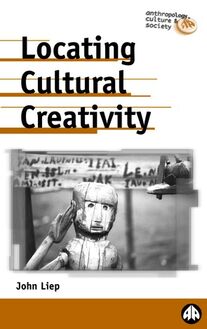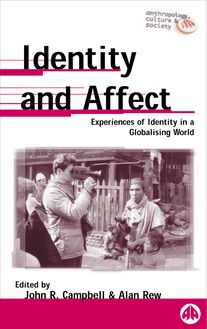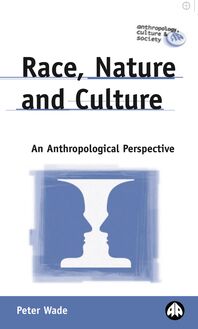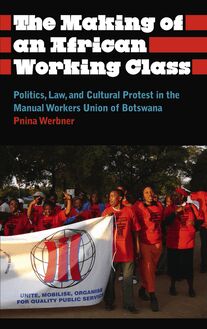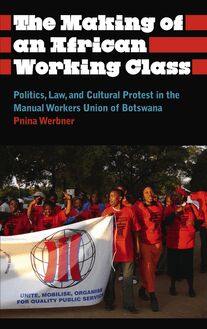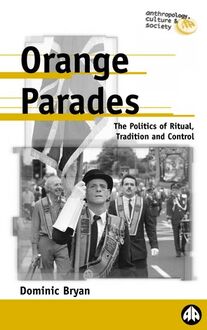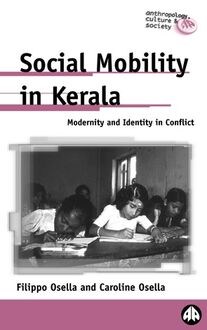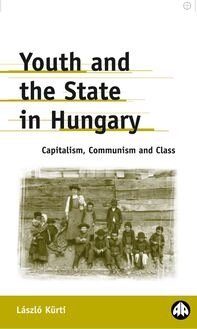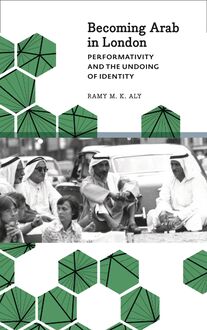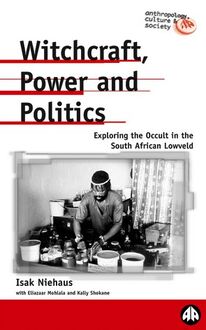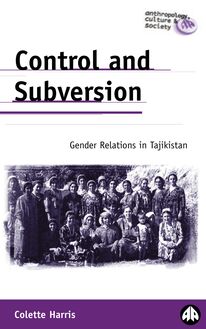Home Spaces, Street Styles , livre ebook
191
pages
English
Ebooks
2011
Vous pourrez modifier la taille du texte de cet ouvrage
Obtenez un accès à la bibliothèque pour le consulter en ligne En savoir plus
Découvre YouScribe en t'inscrivant gratuitement
Découvre YouScribe en t'inscrivant gratuitement
191
pages
English
Ebooks
2011
Vous pourrez modifier la taille du texte de cet ouvrage
Obtenez un accès à la bibliothèque pour le consulter en ligne En savoir plus
Publié par
Date de parution
10 janvier 2011
Nombre de lectures
1
EAN13
9781783713783
Langue
English
Poids de l'ouvrage
1 Mo
The original studies revealed that there were two opposed responses to urbanisation in East London's African locations, one embracing Westernisation, European values and Christianity and another opposed to it. Leslie Bank returned to the areas of East London studied in the 1950s to assess how social and political changes have transformed these areas, in particular the apartheid reconstruction of the 1960s and 1970s and the struggle for liberation followed by the post-Apartheid period in the 1980s and 1990s.
Bank has added important theoretical insights to this rich ethnography, and forged strong links with issues that transcend the particularities of his urban study.
1. Towards An Anthropology Of Urbanism
2. The Xhosa In Town Revisited
3. Modernism, Space And Identity
4. Rebellion, Fractured Urbanism And The Fear Of Fire
5. The Style Of The Comrades
6. Changing Migrant Cultures
7. Re-Modelling The House
8. The Rhythms Of The Yards
9. Post-Apartheid Suburb Or Hyper Ghetto
Notes
Bibliography
Index
Publié par
Date de parution
10 janvier 2011
Nombre de lectures
1
EAN13
9781783713783
Langue
English
Poids de l'ouvrage
1 Mo
Home Spaces, Street Styles
Anthropology, Culture and Society
Series Editors:
Professor Vered Amit, Concordia University and Dr Jon P. Mitchell, University of Sussex
Published titles include:
Home Spaces, Street Styles: Contesting Power and Identity in a South African City L ESLIE J. B ANK
Culture and Well-Being: Anthropological Approaches to Freedom and Political Ethics E DITED BY A LBERTO C ORSÍN J IMÉNEZ
On the Game: Women and Sex Work S OPHIE D AY
Cultures of Fear: A Critical Reader E DITED BY U LI L INKE AND D ANIELLE T AANA S MITH
Slave of Allah: Zacarias Moussaoui vs the USA K ATHERINE C . D ONAHUE
Fair Trade and a Global Commodity: Coffee in Costa Rica P ETER L UETCHFORD
A World of Insecurity: Anthropological Perspectives on Human Security E DITED BY T HOMAS E RIKSEN , E LLEN B AL AND O SCAR S ALEMINK
The Will of the Many: How the Alterglobalisation Movement is Changing the Face of Democracy M ARIANNE M AECKELBERGH
A History of Anthropology T HOMAS H YLLAND E RIKSEN AND F INN S IVERT N IELSEN
The Aid Effect: Giving and Governing in International Development E DITED BY D AVID M OSSE AND D AVID L EWIS
Ethnicity and Nationalism: Anthropological Perspectives Third Edition T HOMAS H YLLAND E RIKSEN
Cultivating Development: An Ethnography of Aid Policy and Practice D AVID M OSSE
Small Places, Large Issues: An Introduction to Social and Cultural Anthropology Third Edition T HOMAS H YLLAND E RIKSEN
Anthropology, Art and Cultural Production M ARUŠKA S VAŠEK
Race and Ethnicity in Latin America Second Edition P ETER W ADE
What is Anthropology? T HOMAS H YLLAND E RIKSEN
Race and Sex in Latin America P ETER W ADE
Anthropology, Development and the Post-Modern Challenge K ATY G ARDNER AND D AVID L EWIS
Anthropology at the Dawn of the Cold War: The Influence of Foundations, McCarthyism and the CIA E DITED BY D USTIN M . W AX
Corruption: Anthropological Perspectives E DITED BY D IETER H ALLER AND C RIS S HORE
Anthropology’s World Life in a Twenty-First Century Discipline U LF H ANNERZ
Learning Politics from Sivaram: The Life and Death of a Revolutionary Tamil Journalist in Sri Lanka M ARK P . W HITAKER
HOME SPACES, STREET STYLES
Contesting Power and Identity in a South African City
Leslie J. Bank
First published 2011 by Pluto Press 345 Archway Road, London N6 5AA and 175 Fifth Avenue, New York, NY 10010 www.plutobooks.com
and Wits University Press 1 Jan Smuts Avenue Johannesburg 2001 South Africa http://witspress.wits.ac.za
All rights reserved. No part of this publication may be reproduced, stored in a retrieval system, or transmitted in any form or by any means, electronic, mechanical, photocopying, recording or otherwise, without the written permission of the publisher, except in accordance with the provisions of the Copyright Act, Act 98 of 1978.
Distributed in the United States of America exclusively by Palgrave Macmillan, a division of St. Martin’s Press LLC, 175 Fifth Avenue, New York, NY 10010
Copyright © Leslie J. Bank 2011
The right of Leslie J. Bank to be identified as the author of this work has been asserted by him in accordance with the Copyright, Designs and Patents Act 1988.
British Library Cataloguing in Publication Data A catalogue record for this book is available from the British Library
ISBN 978 0 7453 2328 2 Hardback ISBN 978 0 7453 2327 5 Paperback (Pluto Press) ISBN 978 1 8681 4531 7 Paperback (Wits University Press) ISBN 978 1 8496 4595 9 PDF eBook ISBN 978 1 7837 1379 0 Kindle eBook ISBN 978 1 7837 1378 3 EPUB eBook
Library of Congress Cataloging in Publication Data applied for
This book is printed on paper suitable for recycling and made from fully managed and sustained forest sources. Logging, pulping and manufacturing processes are expected to conform to the environmental standards of the country of origin.
10 9 8 7 6 5 4 3 2 1
Designed and produced for Pluto Press by Chase Publishing Services Ltd, 33 Livonia Road, Sidmouth EX10 9JB, England Typeset from disk by Stanford DTP Services, Northampton, England Printed and bound in the European Union by CPI Antony Rowe, Chippenham and Eastbourne
Contents
List of Illustrations
Series Preface
Preface and Acknowledgements
1 .
Towards an Anthropology of Urbanism
2 .
The Xhosa in Town Revisited
3 .
Modernism, Space and Identity
4 .
Rebellion, Fractured Urbanism and the Fear of Fire
5 .
The Style of the Comrades
6 .
Changing Migrant Cultures
7 .
Re-modelling the House
8 .
The Rhythms of the Yards
9 .
Post-Apartheid Suburb or Hyper-Ghetto
Conclusion
Notes
Bibliography
Index
Illustrations
MAP
East London and surrounding areas
FIGURE
4.1
Comparison by household types, 1954 and 1995
PHOTOS
1.1
A view of the East Bank location in the 1950s
1.2
The destruction of the Meine family house on Fredrick Street, Tsolo, East Bank, 1967
1.3
Duncan Village Proper, 2004
2.1
Tearoom styles and the Italian street look
2.2
Crowds gather to watch rugby at Rubusana Park in the 1950s
2.3
Sunglasses and smiles, Eastern Beach
2.4
The Havana Hotshots perform at the Peacock Hall, 1955
3.1
New 51/9 houses in Duncan Village Extension
3.2
The East Bank to Duncan Village, 1963
3.3
Aerial photograph of Duncan Village, 1965
3.4
Windowless Transit Houses in C-Section
4.1
Informal settlement behind St Peter’s church, Duncan Village Proper
5.1
Youths relax with the radio, 1950s
6.1
B-hostel complex among shacks and houses, 2004
6.2
Kentani migrants, 2004
7.1
East Bank propertied matriarch, 1950s
7.2
Looking Red: urban women in traditional dress, 1950s
7.3
Domestic desire
7.4
Urban family with male breadwinner
7.5
Thabo in his mother’s home-based spaza shop, 2004
8.1
Domestic pride and shining pots in a backyard shack
8.2
Women hang up the washing in the yard, 2004
9.1
The author with Koko Qebeyi at the Sister Aiden memorial statue in Duncan Village, 2010
9.2
Bishop Michael Coleman at the monument at St Peter’s
9.3
Women in traditional Xhosa attire wait to perform at the old Welsh High School
9.4
Communities of the Saved: conversions in Braelynn Extension, 2004
Series Preface
Anthropology is a discipline based upon in-depth ethnographic works that deal with wider theoretical issues in the context of particular, local conditions – to paraphrase an important volume from the series: large issues explored in small places . This series has a particular mission: to publish work that moves away from an old-style descriptive ethnography that is strongly area-studies oriented, and offer genuine theoretical arguments that are of interest to a much wider readership, but which are nevertheless located and grounded in solid ethnographic research. If anthropology is to argue itself a place in the contemporary intellectual world, then it must surely be through such research.
We start from the question: ‘What can this ethnographic material tell us about the bigger theoretical issues that concern the social sciences?’ rather than ‘What can these theoretical ideas tell us about the ethnographic context?’ Put this way round, such work becomes about large issues, set in a (relatively) small place, rather than detailed description of a small place for its own sake. As Clifford Geertz once said, ‘Anthropologists don’t study villages; they study in villages.’
By place, we mean not only geographical locale, but also other types of ‘place’ – within political, economic, religious or other social systems. We therefore publish work based on ethnography within political and religious movements, occupational or class groups, among youth, development agencies, and nationalist movements; but also work that is more thematically based – on kinship, landscape, the state, violence, corruption, the self. The series publishes four kinds of volume: ethnographic monographs; comparative texts; edited collections; and shorter, polemical essays.
We publish work from all traditions of anthropology, and all parts of the world, which combines theoretical debate with empirical evidence to demonstrate anthropology’s unique position in contemporary scholarship and the contemporary world.
Professor Vered Amit Dr Jon P. Mitchell
Preface and Acknowledgements
This book owes an intellectual debt to Jennifer Robinson and her book Ordinary Cities (2006) which came across my desk at a time when I had more or less given up on the idea of publishing this book. The book revisits and updates the classic urban anthropological work of Philip and Iona Mayer and their colleagues in the South African city of East London in the 1950s. The original Xhosa in Town project, as it was known, formed part of a generation of African urban anthropological studies that flourished in the post-war period when social anthropologists left their rural research sites to follow migrants into towns and cities in Africa, where they studied the social and cultural consequences of urbanisation. This collective body of work was heavily criticised and largely discarded from the late 1960s.
In her book, Robinson nostalgically recalls this golden era of urban anthropology and laments the passing of a tradition of urban scholarship which displayed a genuine interest in the comparative and cosmopolitan nature of urbanism. She argues that the dominance of political economy and development studies discourses, since the late 1960s, has shifted attention away from the sociality of cities and placed them in a neat developmental hierarchy with global cities at the top. In this scheme, Third World cities tended to be viewed only through the lens of their material conditions and infrastructural deficits, as cities with poverty, housing, sanitation and basic services problems, rather than places that display diverse forms of sociality and urban cultural life. Robinson exposed the Euro-centric underpinnings of global city dis
